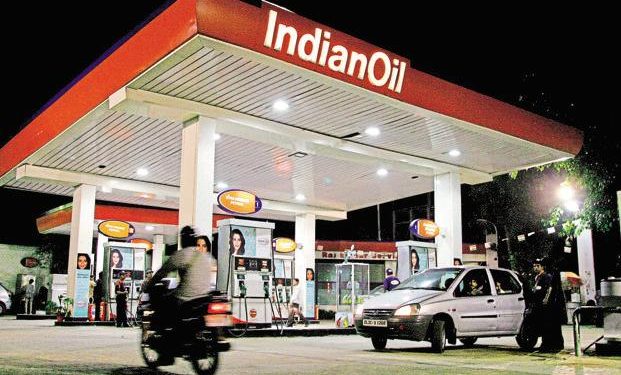Fossil fuel has become a basic necessity for modern day human beings. It is among the most important natural resources for us. Be it transportation, fuel for cooking, heating or electricity generation, life without petroleum products is unthinkable. Energy-hungry India meets more than 80 per cent of its oil needs though imports. It imported 220.43 million tonne (MT) of crude oil in the last financial year and forked out nearly $88 billion (`5.67 lakh crore). For the 2018-19 fiscal, the import estimates are pegged at almost 227 MT. The relentless surge in international oil prices ($80/barrel) has resulted in a sharp uptick in prices of fuel at the pumps. So much so that it has become a talking point with every common Indian. Even as people continue to suffer under the oil shock and are under tremendous pressure, both the Centre and the state government are doing precious little in this regard. The Union Finance Ministry has said on record that it will not reduce the tax load on petroleum products to cushion the fuel blow. People seem unconvinced to buy the logic that the fall in rupee versus the US dollar has caused the surge in the retail prices of fuel. Some state governments like Rajasthan, Andhra Pradesh and West Bengal have effected small reductions in their VAT, while many states like Odisha are not willing to cut the VAT.
Between November 2014 and January 2016, when oil prices were declining, the Centre had hiked the excise nine times and cut it just once in October 2017. It has been steadfastly refusing to cut the excise rate even once, even as the fuel rates have gone up by nearly 20 per cent since last October. The government possibly does not want to risk fiscal slippage at a time when the current account deficit is slated to expand. It is uncertain about the revenues that it may mop up post GST implementation. States too are reluctant to cut their sales tax on fuel even though they have nothing to lose on the GST front for at least four more years. They know the money from VAT on fuel is big and it comes easy. Petroleum products contributed 24 per cent of the Centre’s revenue receipts and 8 per cent of the state’s revenue receipts in 2016-17 fiscal.
This is high time the Centre shunned its resistance to control the runaway fuel prices. It cannot sit quite until the retail prices of petrol reach `100 per litre, which does not seem too far-fetched now. It must ask the oil refining firms to devise a mechanism to not pass on the recurring load in crude prices to consumers. Granted that India imports 80 per cent of its crude oil requirement, but it is self-sufficient in product refining. The oil marketing companies must bring in transparency in their pricing mechanism. It should be based on market realities and not on trade parity principles as they do it now. This will bring an end to allegations regarding cartelisation. The state governments should also follow Rajasthan and Andhra Pradesh and cut VAT on petrol and diesel to bring in immediate relief to the harried consumers. The Centre should try to engage state governments and give them confidence to bring in petrol and diesel under GST. Maybe, improved realisation of GST will give state governments enough elbowroom to manage their finances. In a federal system, the Centre should show its large-heartedness and magnanimity towards states and accommodate their financial inhibitions. Given its massive resource base and the constitutional privileges it enjoys, the Centre should take the first step and encourage the state governments to follow suit. The sooner it does it the better for all.
Economic World War
One American – a poet (TS Eliot) – wrote many years ago, “April is the cruellest month.” Another American –...
Read more





































